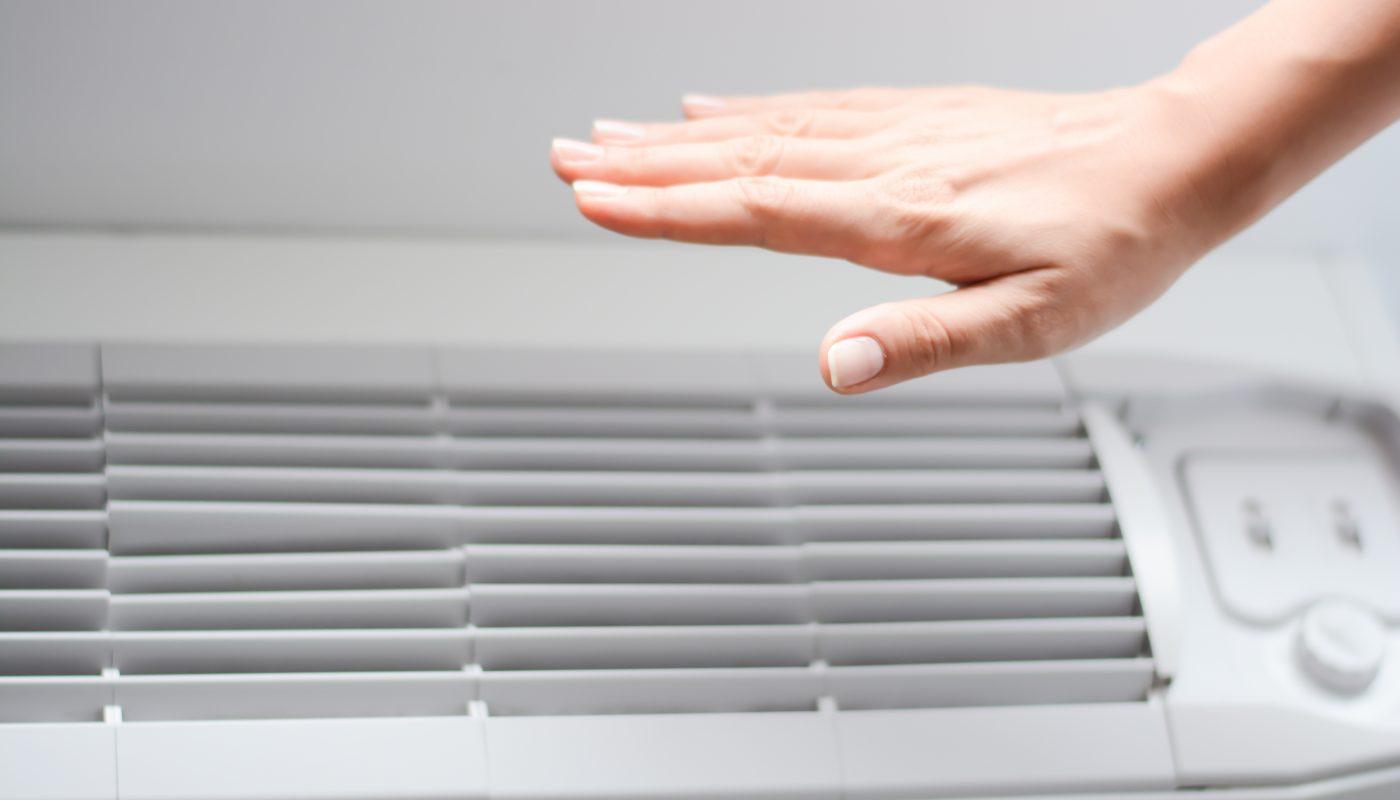There is nothing better than having a cool breeze on a hot summer day. But what would happen if your air conditioner suddenly stops working? We are sure that would be an awful nightmare. To avoid this type of situation, homeowners must understand how to identify and fix some common malfunctions of their unit. In this article, we will talk about how to diagnose a damaged capacitor — plus, all the things you need to consider before replacing the capacitor in an air conditioner.

Before we tell you everything about the warning signs you should look out for, it is crucial to do a quick overview of this part of your HVAC system. A capacitor is a cylinder battery you will find in the section of your unit that is located outdoors. If you go outside and take a look, it might seem like a small thing. However, if your capacitor stops working, your whole HVAC system could malfunction and shut down.
Even though the main task of a capacitor is turning on and off your unit, there are other things it is responsible for. The capacitor in your HVAC system is the one that sends the signal when the thermostat gets triggered. That initial spark that this battery produces is what starts the cooling cycle inside your unit.
One last thing you need to keep in mind before we move on is that replacing an air conditioner capacitor is not easy. This battery is connected to your HVAC system through several wires. This means that in case it is damaged, you’ll have to contact an HVAC expert. . Here is the link of a top provider you can call if this happens: https://andersonair.com/residential/air-conditioning-repair/
6 Things to consider before replacing air conditioner capacitor
As we mentioned above, a capacitor is one of the key components of your HVAC system, and it is responsible for several tasks. When your system starts malfunctioning, you might think that it is due to a damaged capacitor. However, in case you are not sure, here are some things to consider before replacing an HVAC capacitor.
- Aging
When you try to decide if your air conditioner capacitor needs replacement, it is vital to consider how old it is. Most of the time, this cylinder battery will last between 10 and 20 years. However, this lifespan could be affected by different factors, such as constant exposure to heat. In case your capacitor is already surpassing this timeline, the best thing you can do is call an HVAC expert and ask for a replacement.
2. Heat exposure
If your capacitor is located in a place where there is no shade, it could be damaged due to long heat exposure. That’s why if your HVAC unit starts malfunctioning, you could try to fix it by covering your capacitor. However, if the problem persists, it is better to call a professional and get a new battery.
3. Wrong capacitor
Sometimes when the capacitor starts acting up, homeowners decide to change it on their own. The problem is that sometimes they don’t know which one is the right capacitor for their unit. This could become something dangerous because, without the proper voltage rate, other parts of your HVAC could get damaged.
4. Warning symptoms
In case you are not sure whether the capacitor is the part that is causing problems in your HVAC system, there are some warning signs you might want to look out for. However, keep in mind that the only way to be sure is by calling an HVAC expert who can evaluate your entire system.
- The first thing you might notice when your capacitor is not working properly is that it won’t blow any cold air. But before coming to a conclusion, check that no objects are obstructing your airflow and ensure you have proper levels of refrigerant.
- You also need to check if your HVAC system is producing any strange noises. For instance, if there is any clicking or humming noise after your turn on your air conditioner.
- If your system doesn’t have a working capacitor, it will consume more energy. This means your energy bills will exponentially increase. If this situation is not corrected, your air conditioner could get damaged and may not even turn on.
- Visual signs
Even though there are parts of your HVAC system you can’t access without the proper tools, such as the refrigerant or blower motor, luckily, you can see your capacitor all the time since it is located in a visible place. The only thing you need to do is remove the service panel and look for the capacitor. If you don’t know what it looks like, it is usually round and silver with several wire connections.
Before taking a look at it, we recommend turning off the whole system to prevent any accidents. Then, without touching it, see if the top is not domed. Also, check out if there is an oily substance coming from the top that has been leaving a sticky residue behind. If this is what your capacitor looks like, you will need to replace it right away.
- Professional test
If you decide to call an HVAC professional, the first thing they are going to do is run some tests to calculate the voltage of your capacitor. To do this, they will use a multimeter. If the reading is weak, that is a clear sign you need to replace your HVAC capacitor. Even when some people on the internet have videos showing how you can do this DIY, we don’t recommend it. An HVAC professional is the only one who has received training to do this task without damaging your system.
Final Thoughts
In this article, we have talked about the main things you need to consider when you are trying to decide whether or not it is a good idea to replace your capacitor. In case you have to pay for this process, it is only going to cost you between $120 and $250. However, remember that other factors such as the model, voltage, and type of HVAC could affect the price.





